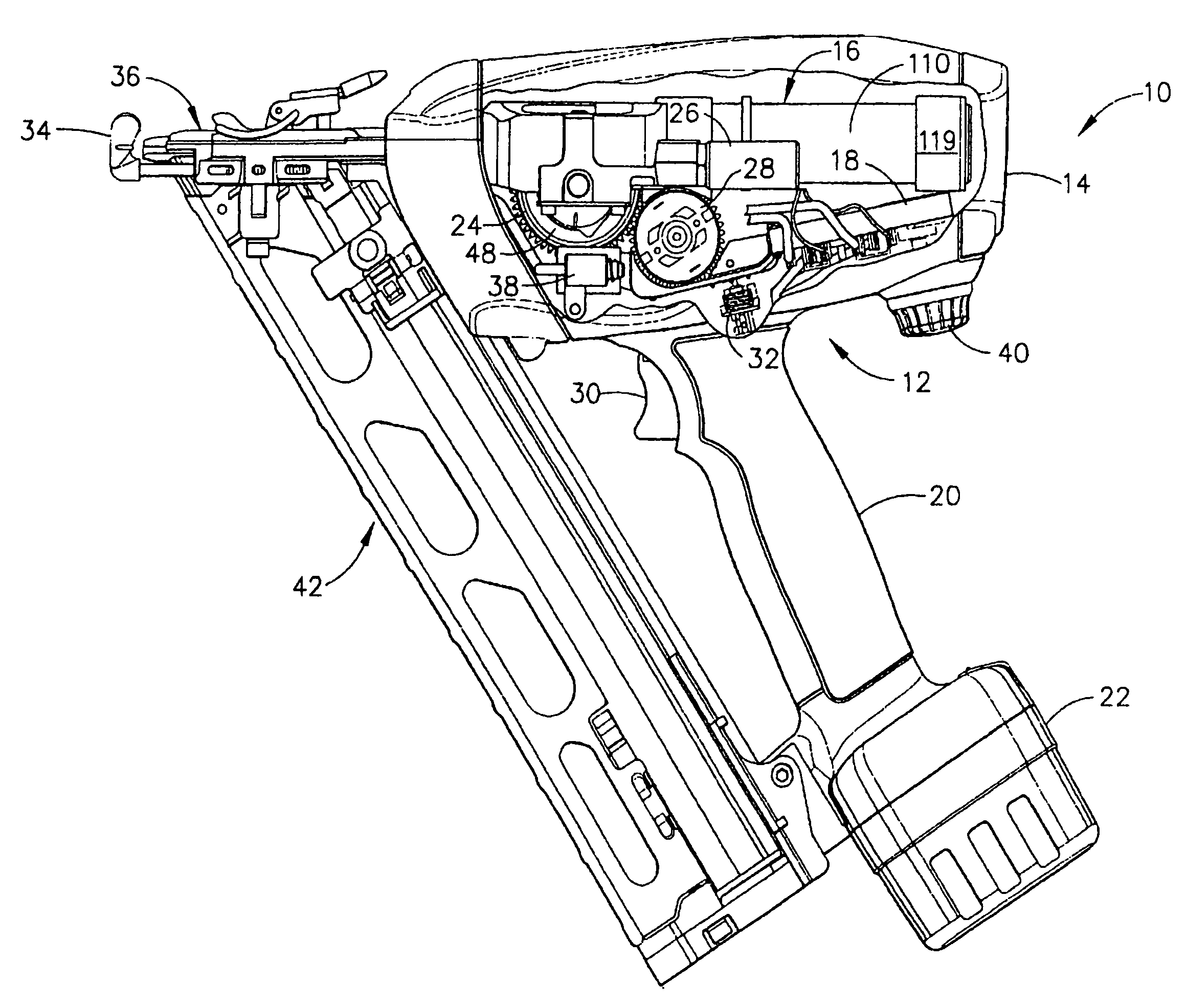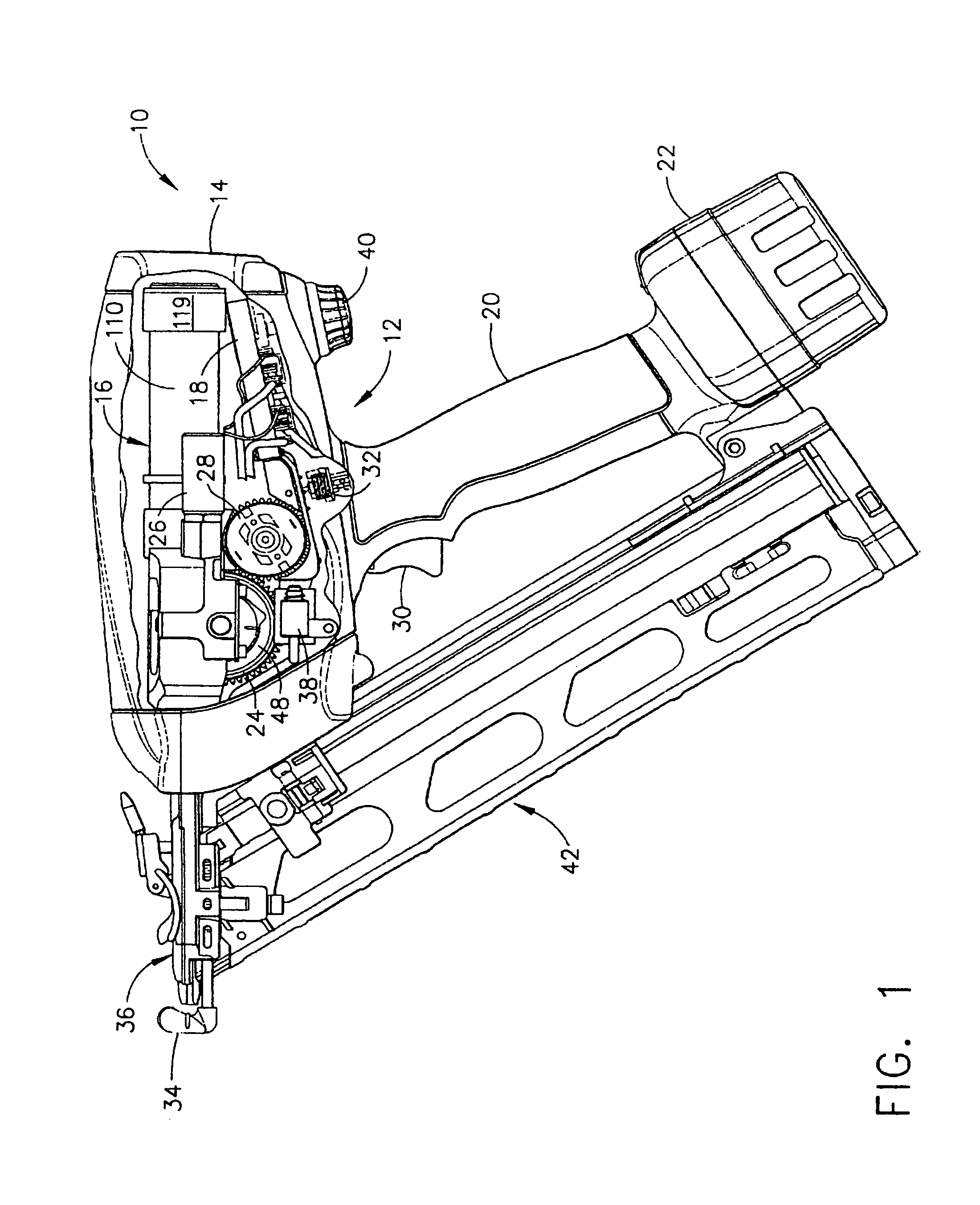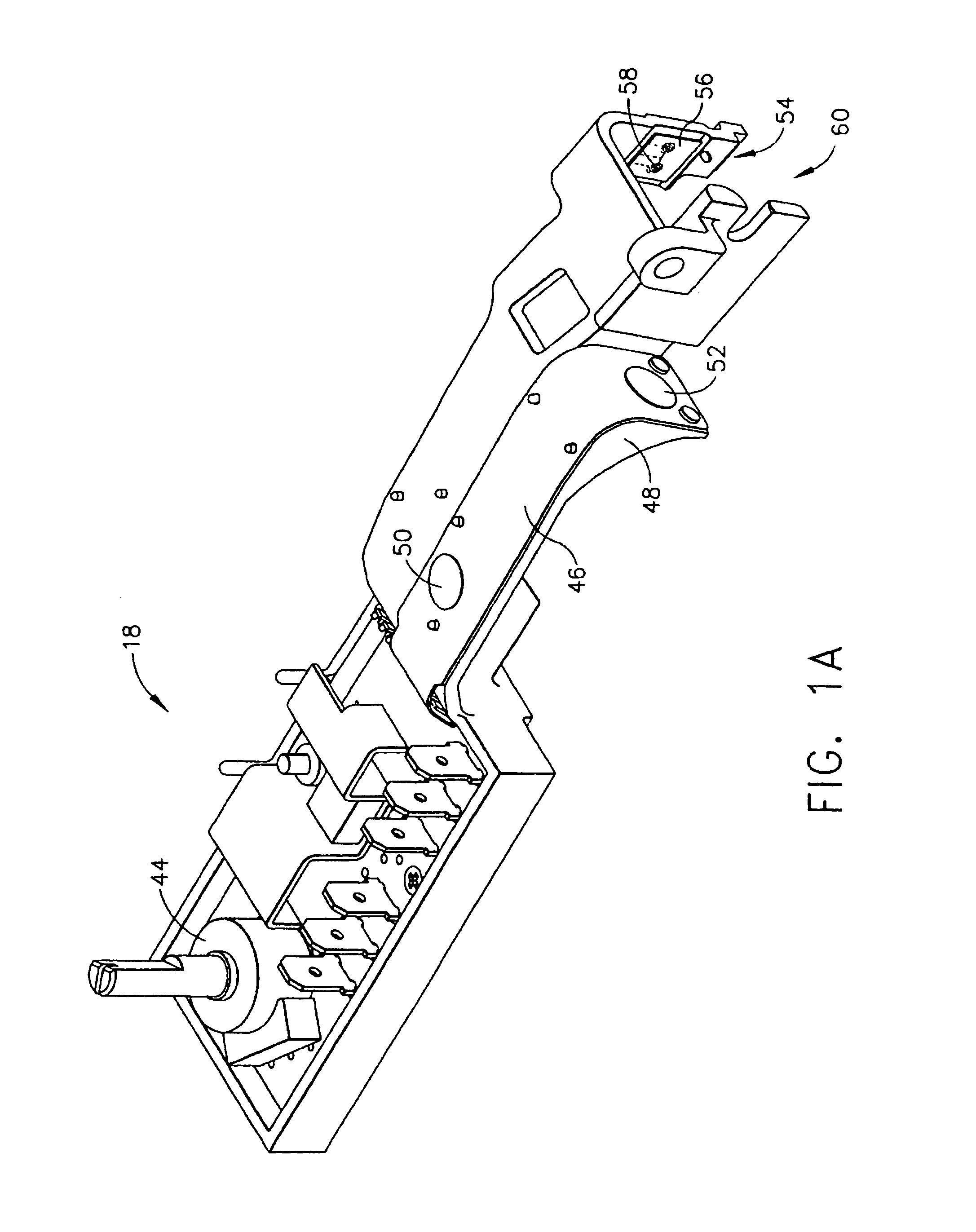Control module for flywheel operated hand tool
a control module and hand tool technology, applied in the direction of manufacturing tools, percussive tools, portable drilling machines, etc., can solve the problems of inability or not desire, on-site air compressor, and often impediment of user dragging pneumatic umbilicals, so as to avoid human errors
- Summary
- Abstract
- Description
- Claims
- Application Information
AI Technical Summary
Benefits of technology
Problems solved by technology
Method used
Image
Examples
Embodiment Construction
[0048]With reference to FIG. 1, wherein like numbers refer to like components throughout the several views, a portable flywheel operated hand tool, depicted as a hand-held nailing tool 10, includes a control system 12 that advantageously provides consistent speed control throughout a range of operating conditions. In particular, the nailing tool 10 generally comprises a housing or main body 14 enclosing a fastener drive assembly 16 and a control module 18, and further includes and a gripping handle 20. Attached to the end of handle 20 is a removable, rechargeable battery 22 for providing the necessary electrical energy to operate a DC motor 24 and a solenoid 26 of the fastener drive assembly 16, as well as the electrical control module 18. Unlike generally known batteries that are required to handle large current influxes (e.g., Nickel Cadmium), the present invention advantageously may utilize other types of batteries (e.g., Nickel Metal Hydride (NiMH), lithium Polymers).
[0049]The D...
PUM
| Property | Measurement | Unit |
|---|---|---|
| on time | aaaaa | aaaaa |
| on time | aaaaa | aaaaa |
| on time | aaaaa | aaaaa |
Abstract
Description
Claims
Application Information
 Login to View More
Login to View More - R&D
- Intellectual Property
- Life Sciences
- Materials
- Tech Scout
- Unparalleled Data Quality
- Higher Quality Content
- 60% Fewer Hallucinations
Browse by: Latest US Patents, China's latest patents, Technical Efficacy Thesaurus, Application Domain, Technology Topic, Popular Technical Reports.
© 2025 PatSnap. All rights reserved.Legal|Privacy policy|Modern Slavery Act Transparency Statement|Sitemap|About US| Contact US: help@patsnap.com



